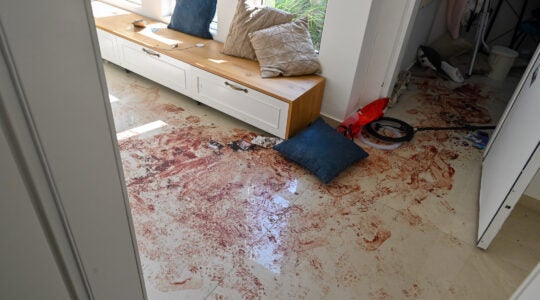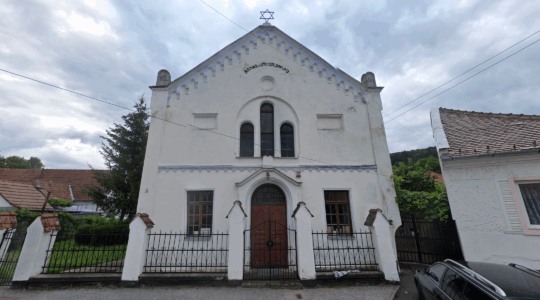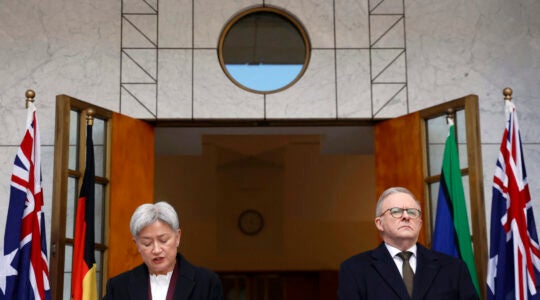(JTA) — In a rare questioning of authorities, Jewish leader in Belarus said they were “concerned” over plans to build apartments atop what used to be a Jewish cemetery in Gomel.
The statement by the Union of Public Associations and Jewish Communities provided to JTA earlier this week is unusual in a country that is sometimes referred to as “Europe’s last dictatorship” over the authoritarian rule of its president, Alexander Lukashenko.
It follows reports by JTA and others on the Aug. 21 ruling by the Tsentralny District Court not to intervene in plans for the construction of two luxury apartment buildings on the grounds of a former cemetery on Sozhskaya Street in the eastern city. The court was responding to a motion for an injunction submitted by Yakov Goodman, a Jewish-American activist for the preservation of Jewish heritage sites in his native Belarus who is outspoken in his criticism of the Lukashenko regime.
The Jewish union “is closely monitoring the situation in Gomel and is in constant touch with representatives of the local Jewish community,” the organization’s statement also read.
According to Jewish religious laws, burial sites must not be disturbed except in special cases.
The last burial that took place at the cemetery happened before 1885, and most human remains “are likely gone as a result of previous construction — if they there were in this location to begin with,” the union also said.
The Euro-Asian Jewish Congress, where the Belarusian union of communities is a member, issued a stronger condemnation of the ruling, saying the courts in Belarus are “dependent on the executive bodies,” according to the 2017 country report for Belarus by the Freedom House democracy watchdog. Freedom House ranks Belarus as the least free nation in the European part of the former Soviet Union, labeling it the continent’s only “consolidated authoritarian regime” besides Russia.
The congress “strongly opposes construction above and destruction of Jewish heritage sites around the world, including in Belarus,” the group’s president, Mikhael Mirilashvili, told JTA.
Robert Singer, the executive vice president of the World Jewish Congress, also spoke out against the plans in Gomel.
“The World Jewish Congress was concerned and disappointed to learn that the Belarusian authorities had authorized” the plan, he said.
“The WJC has engaged in constructive and positive dialogue with the Belarussian government, including the president, prime minister, and foreign minister, in recent years, and we hope to maintain the same level of communication and understanding with regard to this issue as well,” Singer wrote.
In replying to the motion on construction in Gomel, the city’s urban housing and communal services department told the court, “There is no information about the location of the cemetery in this place.”
Several historians disputed the assertion.
The Belarusian government did not reply to a request for comment by JTA.
JTA has documented Jewish history in real-time for over a century. Keep our journalism strong by joining us in supporting independent, award-winning reporting.





